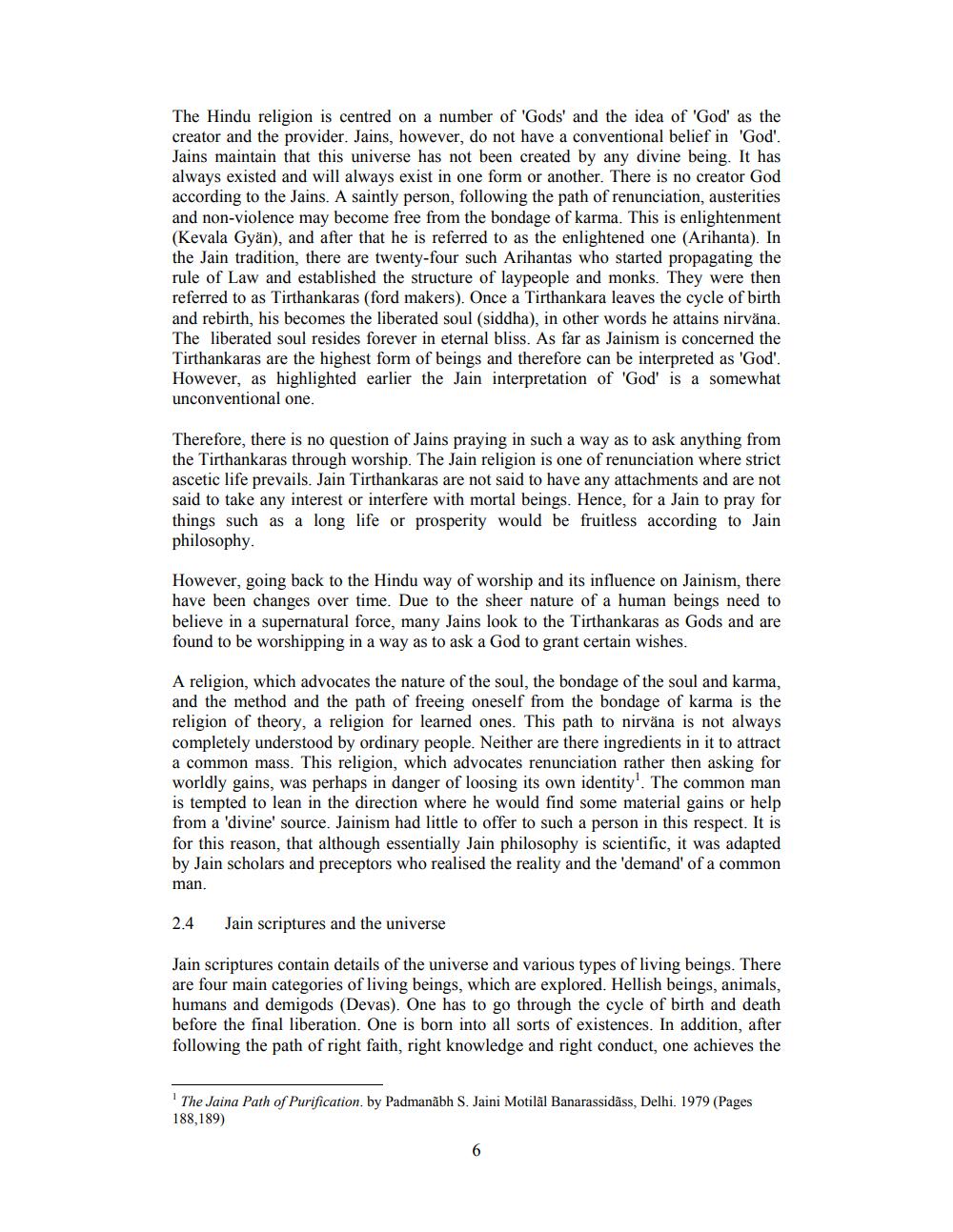Book Title: Nav Smarana Author(s): Vinod Kapashi Publisher: Vinod Kapashi View full book textPage 6
________________ The Hindu religion is centred on a number of Gods' and the idea of 'God' as the creator and the provider. Jains, however, do not have a conventional belief in ' God'. Jains maintain that this universe has not been created by any divine being. It has always existed and will always exist in one form or another. There is no creator God according to the Jains. A saintly person, following the path of renunciation, austerities and non-violence may become free from the bondage of karma. This is enlightenment (Kevala Gyän), and after that he is referred to as the enlightened one (Arihanta). In the Jain tradition, there are twenty-four such Arihantas who started propagating the rule of Law and established the structure of laypeople and monks. They were then referred to as Tirthankaras (ford makers). Once a Tirthankara leaves the cycle of birth and rebirth, his becomes the liberated soul (siddha), in other words he attains nirvana. The liberated soul resides forever in eternal bliss. As far as Jainism is concerned the Tirthankaras are the highest form of beings and therefore can be interpreted as 'God'. However, as highlighted earlier the Jain interpretation of God' is a somewhat unconventional one. Therefore, there is no question of Jains praying in such a way as to ask anything from the Tirthankaras through worship. The Jain religion is one of renunciation where strict ascetic life prevails. Jain Tirthankaras are not said to have any attachments and are not said to take any interest or interfere with mortal beings. Hence, for a Jain to pray for things such as a long life or prosperity would be fruitless according to Jain philosophy. However, going back to the Hindu way of worship and its influence on Jainism, there have been changes over time. Due to the sheer nature of a human beings need to believe in a supernatural force, many Jains look to the Tirthankaras as Gods and are found to be worshipping in a way as to ask a God to grant certain wishes. A religion, which advocates the nature of the soul, the bondage of the soul and karma, and the method and the path of freeing oneself from the bondage of karma is the religion of theory, a religion for learned ones. This path to nirvana is not always completely understood by ordinary people. Neither are there ingredients in it to attract a common mass. This religion, which advocates renunciation rather then asking for worldly gains, was perhaps in danger of loosing its own identity'. The common man is tempted to lean in the direction where he would find some material gains or help from a 'divine' source. Jainism had little to offer to such a person in this respect. It is for this reason, that although essentially Jain philosophy is scientific, it was adapted by Jain scholars and preceptors who realised the reality and the 'demand' of a common man. 2.4 Jain scriptures and the universe Jain scriptures contain details of the universe and various types of living beings. There are four main categories of living beings, which are explored. Hellish beings, animals, humans and demigods (Devas). One has to go through the cycle of birth and death before the final liberation. One is born into all sorts of existences. In addition, after following the path of right faith, right knowledge and right conduct, one achieves the The Jaina Path of Purification by Padmanabh S. Jaini Motilal Banarassidãss, Delhi. 1979 (Pages 188, 189)Page Navigation
1 ... 4 5 6 7 8 9 10 11 12 13 14 15 16 17 18 19 20 21 22 23 24 25 26 27 28 29 30 31 32 33 34 35 36 37 38 39 40 41 42 43 44 45 46 47 48 49 50 51 52 53 54 55 56 57 58 59 60 61 62 ... 224
